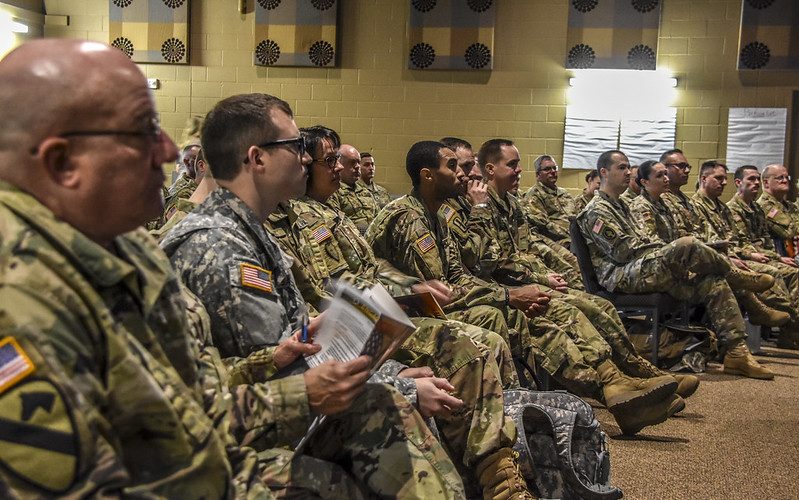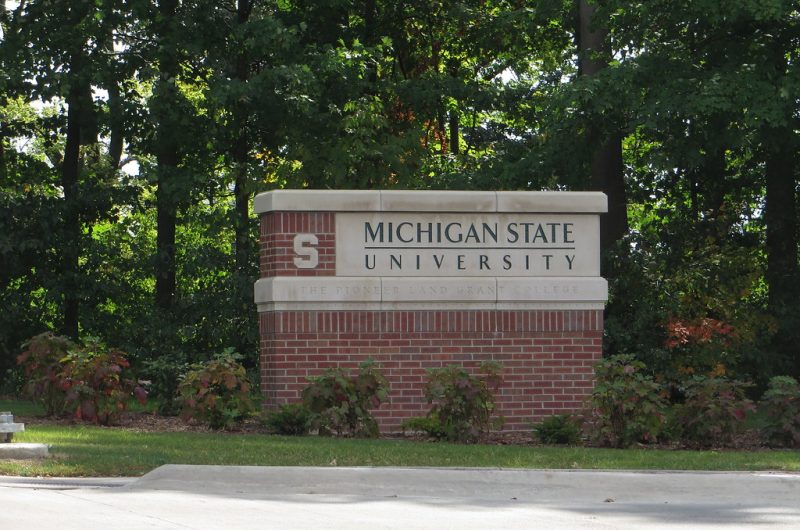Military Tuition Aid

Considering the level of recent public discourse regarding student debt, it seems appropriate to discuss a means to obtain a higher education without acquiring debt: service in the U.S. military.
Most people have a vague notion of the “GI Bill,” and yes, there is a new GI Bill, but there are also many different benefits to assist students who served (or are serving in one of the reserve components) to help pay for a post-secondary education.
I served for 22 years on active duty, and three of those years were as a recruiter; one of the “selling” points was education benefits, but recruiters faced many obstacles trying to establish a presence in high schools and make students aware of the option of service for schooling.
In any case, this article is an excellent platform to give a brief explanation of just what is available to young women and men willing to serve, be that on active duty or in the guard or reserve.
The best place to begin is with active duty.
The Post 9/11 GI Bill is the most-recent incantation of the “GI Bill” that most people know of, but know little about.
So briefly, here is a description: Any person who serves at least three years after 9/11/2001 and is honorably discharged is entitled to 100% of their tuition and fees being paid at a VA-certified institution of higher learning, a monthly living stipend based on an analysis of the cost of living in the zip code of the school, and $1,000/year for books and supplies, for 36 months as long as the veteran is attending school or training full-time.
There are also reduced percentages available to veterans who served less than 36 months or were honorably discharged for medical reasons. However, there are also opportunities to attend school while on active duty.
Federal Tuition Assistance (FTA) is a program which allows active service members to access up to $4,000/year and take up to 16 credit hours each year.
Many service members who serve a standard 3- or 4-year enlistment can obtain an associate degree before leaving the service and be well on their way to tapping into the Post 9/11 benefit and obtaining a baccalaureate or higher degree.
There are also local re-enlistment incentives in the various commands worldwide for service members who choose to extend their service, such as being placed on temporary duty for an entire semester to attend school at a local college or university, all costs paid, or additional money above and beyond the FTA $4,000/year limit.
There is another benefit for active service (and service in the reserve components on a more limited scale) for service members who have already attended higher education and have amassed some debt: The Student Loan Repayment enlistment option. The amount which is repaid varies based on other enlistment contract options, but it can be in excess of $100,000.
Now let us turn to service in the reserve components of the armed forces.
Serving in the reserve of any of the branches with a reserve component entitles the reservist to use the Select Reserve Montgomery GI Bill (SRMGIB) for up to 36 months if they remain on drilling reserve status and maintain all their service requirements, such as weapon qualification and physical fitness testing in “good standing.”
This benefit pays the reservist a direct payment of about $500 to $800 per month, depending on what job specialty and/or high-needs reserve unit they became a member of. Drilling reservists also have access to the same FTA funds as active-duty members but cannot use both at the same time.
The other reserve component, the National Guard, has additional benefits depending on the state, but we will only examine Michigan for this article.
National Guard members are eligible for both the SRMGIB and FTA, but the State of Michigan also allows each guard member up to an additional $14,400/year to offset the cost of tuition and fees (this can easily pay all of a guard member’s tuition and fee costs at many Michigan schools).
Northern Michigan University, where I serve as the Coordinator of Student Veteran Services, also offers drilling guard members a 45% discount on their tuition and fees. The qualification to receive these benefits is the same as a reservist: the guard member must maintain themselves in “good standing” at all times.
One other benefit that may be available to veterans who were either honorably discharged due to injury or wound and have obtained a Veteran Administration disability rating, or veterans who obtain a disability rating for a service connected injury at any time after their service is the Veterans Readiness and Employment Program (VRE).
This program can be applied for by veterans with at least a 10% disability with a specific unemployability statement, or any veteran with a disability rating of 20% or higher. The veteran must meet with a VRE counselor, and if entered into the program, it pays exactly as the Post 9/11 GI Bill but with a few added benefits: VRE students can receive the benefit for up to 45 months and also receive post-education job placement assistance.
Additionally, VRE students are not limited to the $1,000/year Post 9/11 GI Bill books and supply limit–the VRE program pays for all school-related supplies to include parking passes, etc.
As you can see, service in the armed forces can be beneficial for those able to make the commitment.
Military service is not for everyone, but for those willing to make the sacrifice of sweat, and sometimes even blood, the reward can be a brighter future with a higher education.





